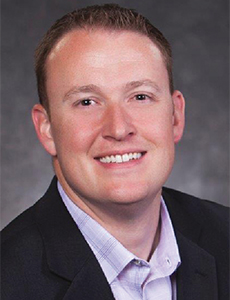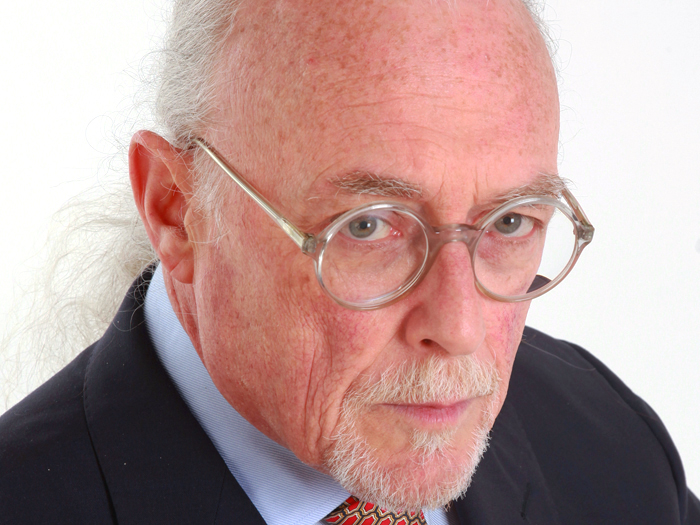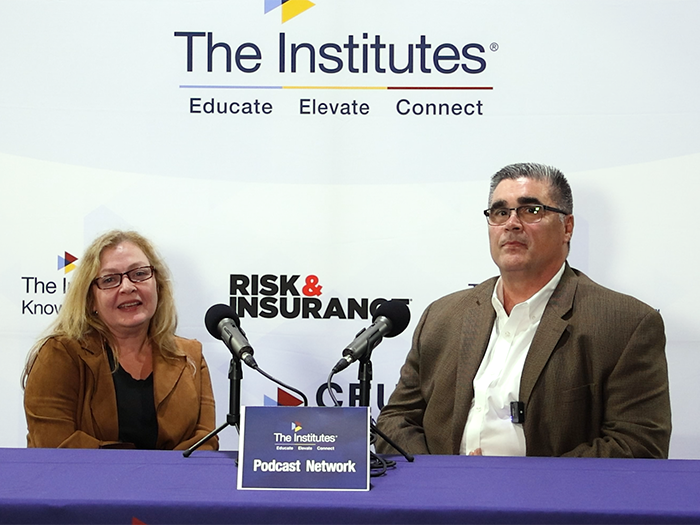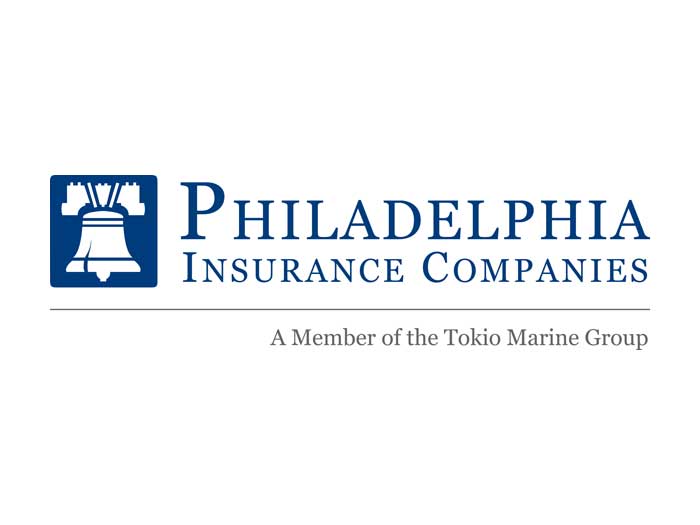Caesars Doubles Down on Employee Safety

When Brad Waldron came to Caesars Entertainment Corp. in 2013, the wheels at the company’s roulette tables were moving, but the needle on safety improvements wasn’t.
“It was a situation where it was very apparent, analytically, that things hadn’t been improving. Things weren’t being pushed to improve and there needed to be a wholesale change,” Waldron said.
Waldron’s background was in heavy industry — petroleum refining, chemical manufacturing, plastics, metals smelting and the like. These are environments in which one wrong move means a lot of people get hurt.
Waldron built a career in those sectors in which compliance, management system design and development were key areas of focus for him. But when he came to Caesars, there were a couple of additional risk management dice in his valise; both of them loaded.
One is his skill as a communicator. Scratch Waldron with some force, a colleague said, and you will release the plasma of a salesman, someone skilled at conveying a message and communicating the upside of programs to stakeholders.
The second die Waldron palms is that he comes from a small, tight-knit coastal town. Feeling responsible for members of his community is in his DNA.
“I grew up in a small town in Maine that morphed from fishing village to tourist haven and back again each year,” he said.
“Those of us who called it home year-round felt a real sense of community and looked out for each other.”
In cold numbers, upon Waldron’s arrival, Caesars was spending way too much on workers’ compensation. The company of 65,000 employees was experiencing 3,500 workers’ compensation claims each year.
The company had a solid OSHA program. Waldron pondered. Something wasn’t adding up.
The actions that Waldron and his team eventually took earned Caesars a 2019 Theodore Roosevelt Workers’ Compensation and Disability Management Award.
The Entire Risk Control Team Was Replaced
According to Waldron, it wasn’t that the existing professionals in risk control didn’t have the best of intentions; they had just been doing the same thing for more than a decade without getting better results.
“It was really time to start looking at it from a program structure perspective, ‘What can we do to move the needle?’” Waldron said.
Waldron made three key hires. Onto his team came Daemon Smith, a director of risk security at one of the company’s regional properties. Waldron let it be known that he was rebuilding the risk control team and up went Smith’s hand.
“What do I have to do to be considered for that?” Smith said on a conference call with 80 other people, including his boss.
“His team has really gotten creative in developing electronic tools that are available to everybody in our organization to manage behavioral safety; to look for trends in ways nobody in this organization has ever looked at before,” Waldron said.
Kyla Robinson, formerly of Beecher Carlson, came onto the team as head of claims.
“Beecher was our broker at the time, and Kyla was running an engagement with us and we really hit it off,” Waldron said.
“She brought a lot of experience to the table, but her open mind and her ability to think outside a historic framework really led to the value that she’s created here,” Waldron added.
Another safety professional with a background in heavy industry completed the trifecta: Dave Harmon, Caesar’s manager of health and safety, who came from aviation, the rail industry and construction.
Waldron credits Harmon with being a safety whisperer, of sorts. He has the rare gift of being a superb listener. He listens to workers’ concerns and follows up with them, making sure processes are improved.
“I am real curious about human behavior, which is a component of occupational safety. For employees to be forthcoming about why they made certain decisions, you have to get people to trust you,” Harmon said.
“I do that with an array of soft skills that I use, mostly listening. I truly believe that God gave us two ears and one mouth for a reason. A safety conversation must be a good-natured exchange of thoughts and ideas,” Harmon said.
The Company Hired a New TPA
Waldron brought ESIS, the Chubb subsidiary, on board in June of 2017.
“From the first time we met them, it was evident that they were interested in partnering with us,” Waldron said.
“The relationship developed naturally, there was no pressure to utilize all of their service offerings,” Waldron said.
“Their value quickly became apparent, and they let that develop naturally,” he said.
Caesars Opened Medical Clinics for Employees
ESIS was hot on opening medical clinics in the company’s key locations, Las Vegas and Atlantic City.
“The return on investment for those clinics, on average between the two markets, was something between 60 and 90 days.
“We knew that it would be quick, we just didn’t know how quick,” Waldron said.
In its clinic operating partner, Caesars found an ally that shared Waldron’s approach.
“There were moments when we saw increases in our medical expense on an average basis per claim, because they were going to doctors who don’t typically do workers’ compensation.
“But the employees were getting better faster and that’s a hard thing to ignore,” Waldron said.
They Championed a New Allocation Methodology
Waldron came to Caesars just as the company was rolling out a new allocation model for workers’ compensation costs.
Historically, the company amortized each property’s expenses over 12 months.
In the new model, properties would be charged a flat per-claim charge for medical-only claims, and a much more significant charge would be developed based on the property’s loss history.
“I can’t take credit for the allocation model, but I did take the initiative in calling every general manager and risk leader at every property and explaining the dynamics of the system to them,” Waldron said.
“I also included specific directions on how to beat the allocation model and save money by bringing everyone back to work, by paying full wages when someone had to be out of work and by ensuring injured employees had immediate access to excellent care.”
The Winning Numbers so Far
From 2013 to the present, total claim frequency at Caesars Entertainment is down 52%. Total medical paid is down 42%, and total open claims are down 53%.
Underlying those numbers is the principle that, managed properly, a workers’ compensation program can be part of an operational success story, not merely a cost center.
It is also a place where companies can truly, in their bones, demonstrate that they care about their employees’ well-being.
For Caesars, they care enough to listen to the injured workers, they care enough to pay each employee a living wage as they recuperate, and they care enough to address the employees’ fears — something everyone experiences and yet so few admit.
“We know that injured workers are scared more than anything else,” Waldron said.
“So every effort is made to go out of our way to remain connected and reassure them that they’ll be well cared for.”
Far from being a place where hard-earned dollars evaporate, the risk and safety control team at Caesars is now playing with house money. &












